บทความ
KERNEL โทเคนจาก KernelDAO โปรโตคอลการ Restaking แบบหลายเชน
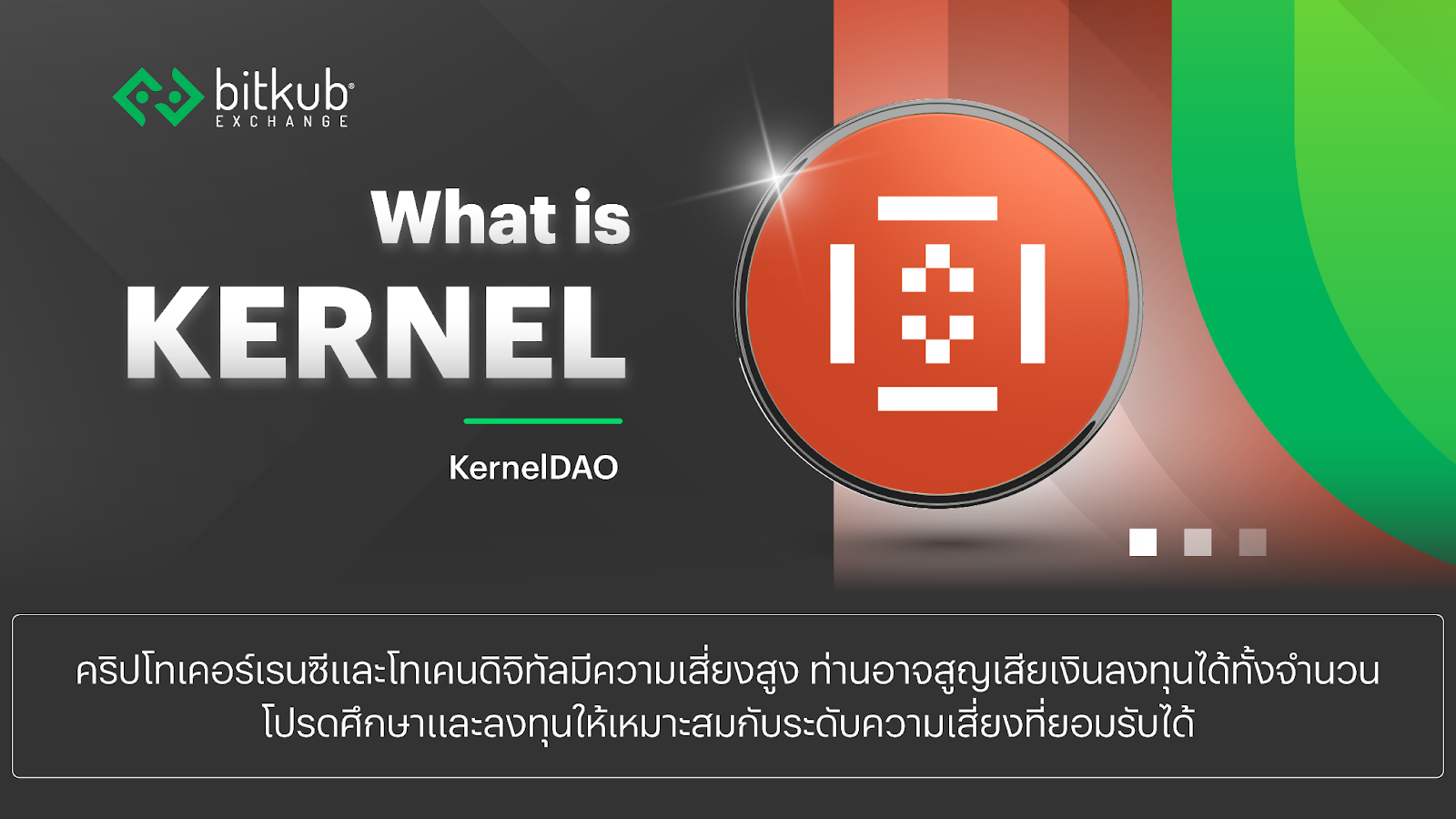
สำหรับผู้ที่ชื่นชอบคริปโตที่กระตือรือร้นที่จะเจาะลึกในโลก Decentralized Finance (DeFi) ที่กำลังพัฒนาอย่างก้าวกระโดด KernelDAO โดดเด่นในฐานะโปรโตคอลการ Restaking แบบหลายเชนที่บุกเบิก KernelDAO ได้รับการออกแบบมาเพื่อเพิ่มประสิทธิภาพการใช้งานและความปลอดภัยของสินทรัพย์ดิจิทัลที่ถูก Stake ไว้ โดยเป็นผู้นำด้านนวัตกรรมที่ช่วยให้สินทรัพย์ทำงานได้มากขึ้นในเครือข่ายบล็อกเชนต่างๆ
KernelDAO คืออะไร?
KernelDAO คือ โปรโตคอลแบบกระจายอำนาจที่เปิดใช้งาน “Restaking” ซึ่งเป็นกลไกที่สินทรัพย์ที่ถูก Stake ไว้ (เช่น ETH, BTC หรือ BNB) เพื่อรักษาความปลอดภัยของเครือข่ายบล็อกเชนและบริการที่ตรวจสอบได้อย่างแข็งขัน (AVSs) ได้พร้อมกัน ซึ่งที่ผ่านมาการ Stake แบบดั้งเดิมมักจะจำกัดสินทรัพย์ไว้ในเครือข่ายเดียว ซึ่งจำกัดศักยภาพของสินทรัพย์ แต่ทาง KernelDAO ทำลายข้อจำกัดนี้โดยนำเสนอแพลตฟอร์มแบบครบวงจรที่ช่วยเพิ่มประสิทธิภาพเงินทุน ลดต้นทุนด้านความปลอดภัยสำหรับโครงการใหม่ๆ และปลดล็อกโอกาสในการสร้างผลตอบแทนเพิ่มเติมสำหรับผู้ใช้งาน โดยทำงานร่วมกับระบบนิเวศหลักๆ เช่น Ethereum และ BNB Chain และขยายขอบเขตการเข้าถึงผ่านการผสานรวมกับโซลูชัน Layer 2 จำนวนมาก
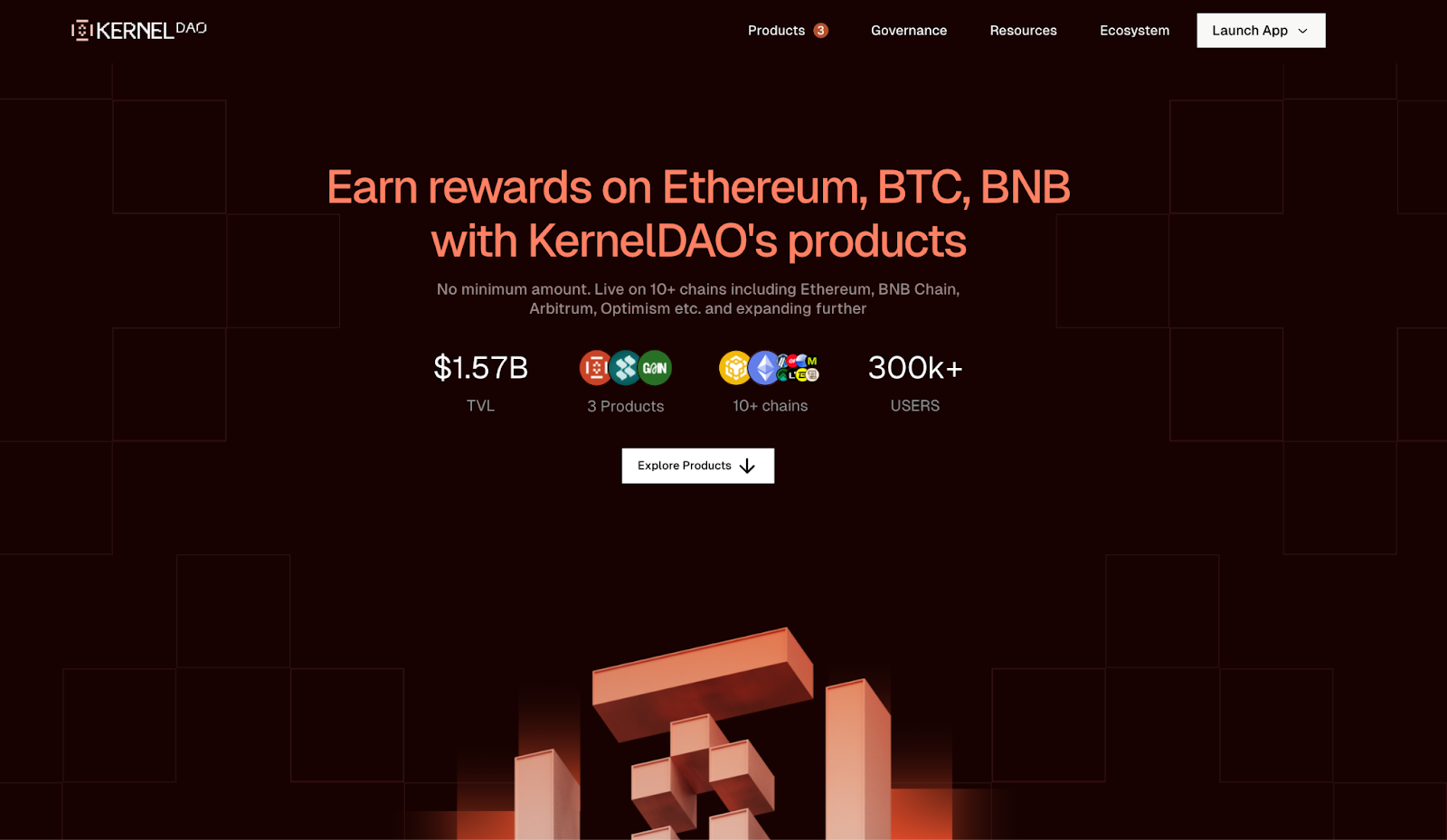
คุณสมบัติโดดเด่นของ KernelDAO
ระบบนิเวศของ KernelDAO สร้างขึ้นจากผลิตภัณฑ์สามตัวที่แตกต่างกันแต่เชื่อมโยงระหว่างกัน ได้แก่
— Kernel (Shared Security Layer บน BNB Chain) เป็นโครงสร้างพื้นฐานการ Restaking พื้นฐานบน BNB Chain ผู้ใช้สามารถ Restake BNB, BTC และสินทรัพย์อื่นๆ ที่รองรับเพื่อมอบความปลอดภัยทางเศรษฐกิจสำหรับแอปพลิเคชันและเป็น middleware แบบกระจายอำนาจต่างๆ การรวมสินทรัพย์ที่ถูก Restake เข้าด้วยกัน ทำให้ Kernel สร้างความปลอดภัยทางเศรษฐกิจคริปโตเข้าถึงได้ง่ายขึ้นและคุ้มค่าสำหรับทั้งผู้มอบอำนาจ (ผู้ที่ได้รับรางวัลเพิ่มเติม) และนักพัฒนา (ผู้ที่ได้รับประโยชน์จากต้นทุนการบูตความปลอดภัยที่ต่ำกว่า)
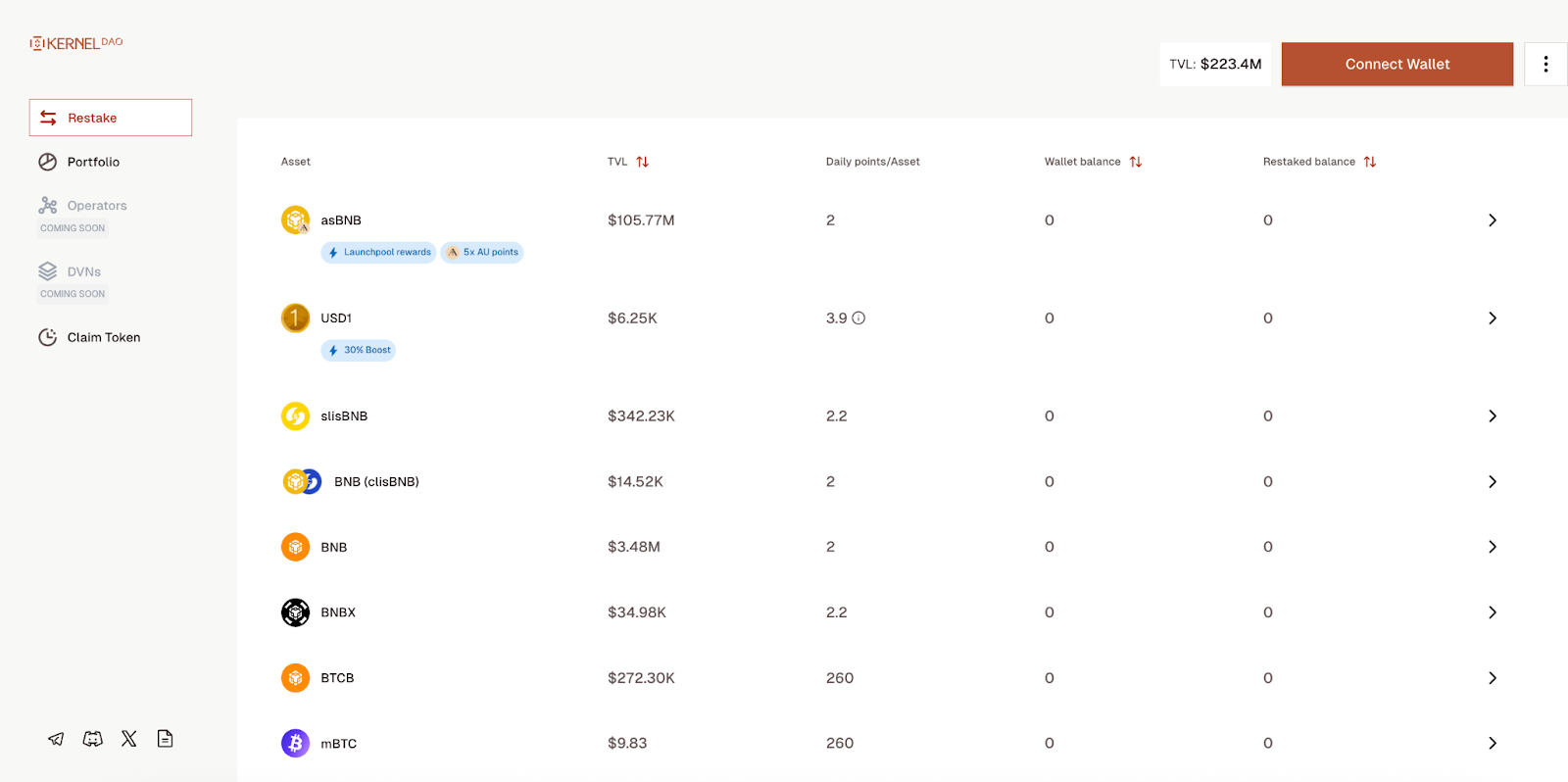
— Kelp (Liquid Restaking บน Ethereum) ในฐานะโปรโตคอล Liquid Restaking ชั้นนำบน Ethereum, Kelp ช่วยให้ผู้ใช้สามารถ Stake ETH และรับ RSETH ซึ่งเป็นโทเคน Liquid Restaked โทเคน RSETH นี้ยังคงสภาพคล่อง ทำให้ผู้ใช้สามารถเข้าร่วมในแอปพลิเคชัน DeFi อื่นๆ เช่น การให้กู้ยืมและแหล่งรวมสภาพคล่อง (Liquidity Pools) ในขณะที่ยังคงได้รับทั้งรางวัลจากการ Stake และ Restake ทำให้ Kelp ได้กลายเป็นผู้เล่นที่สำคัญอย่างรวดเร็ว โดยมี Total Value Locked (TVL) จำนวนมากและการผสานรวมกับแพลตฟอร์ม DeFi จำนวนมาก
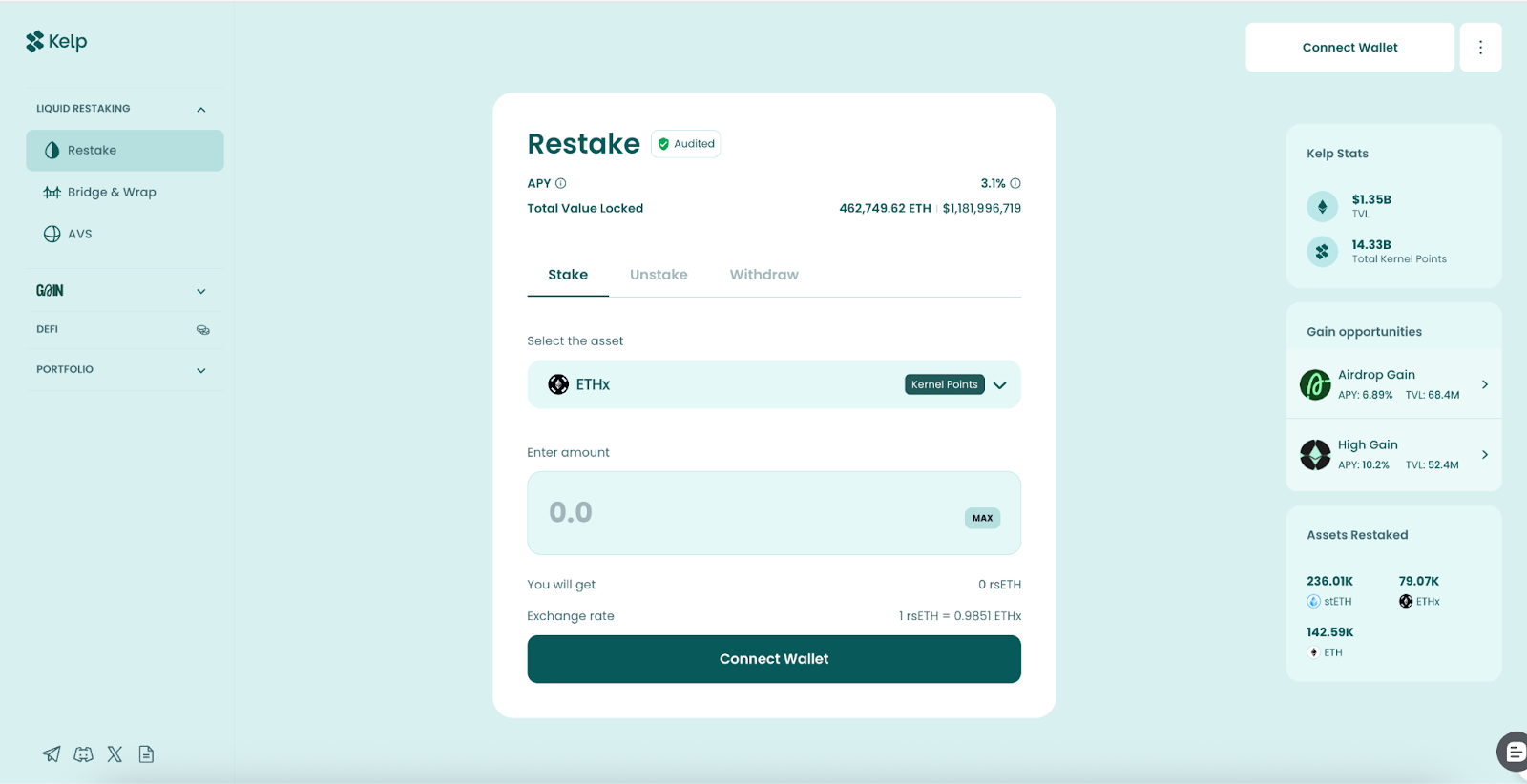
— Gain (Automated Yield Vaults) นำเสนอ Vaults การเพิ่มประสิทธิภาพผลตอบแทนแบบ non-custodial ที่ซับซ้อน ซึ่ง Vaults จะทำให้การทำฟาร์ม การ Stake และโอกาสการ Airdrop ที่ซับซ้อนเป็นไปโดยอัตโนมัติ ทำให้กระบวนการสร้างรายได้แบบ Passive Income ง่ายขึ้น โดยได้รับการออกแบบมาเพื่อเพิ่มผลตอบแทนสูงสุดโดยการปรับใช้สินทรัพย์ในโปรโตคอลต่างๆ ซึ่งนำเสนอวิธีที่ใช้งานง่ายในการนำทางกลยุทธ์ DeFi ที่หลากหลาย
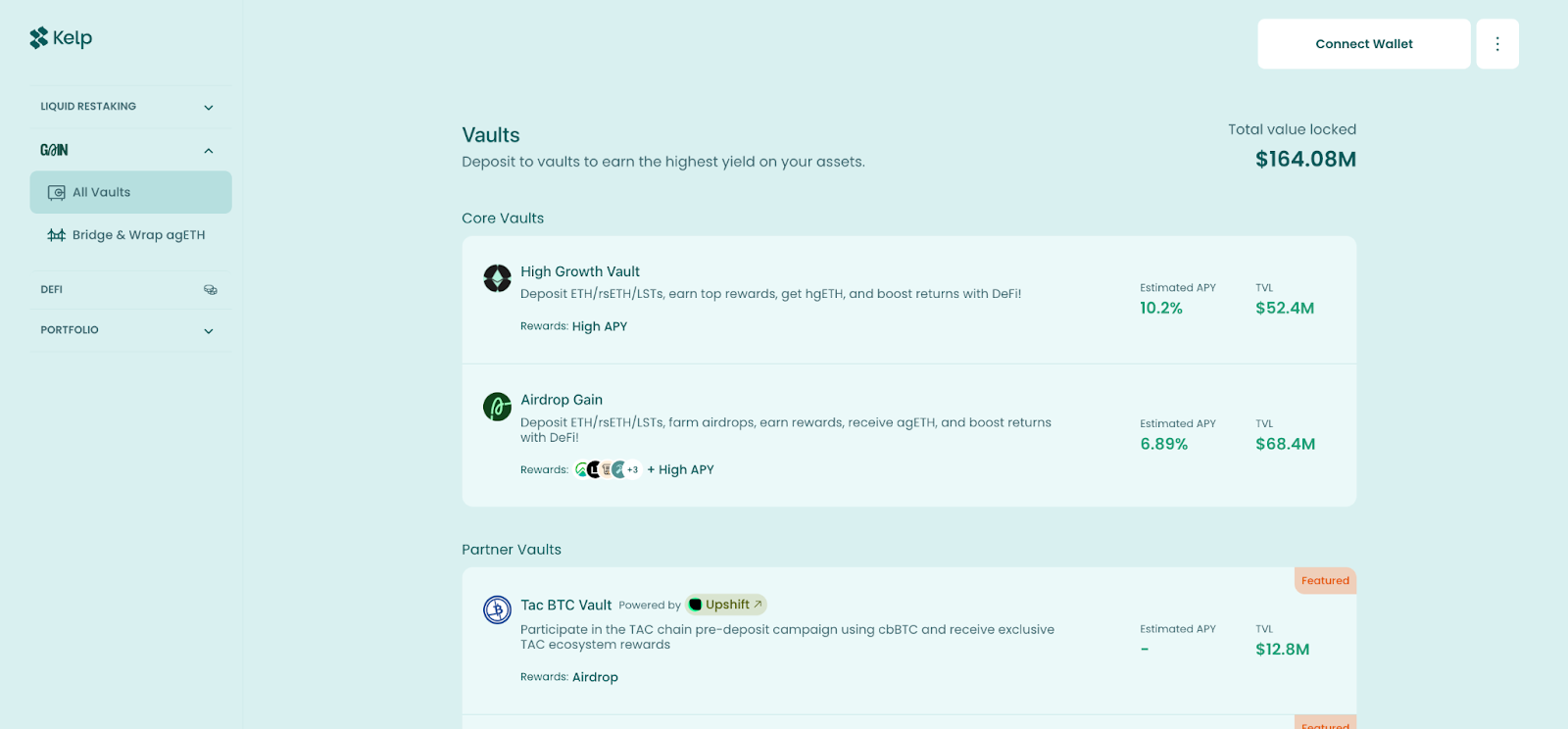
นอกเหนือจากผลิตภัณฑ์เหล่านี้ KernelDAO ยังให้ความสำคัญกับความปลอดภัยที่แข็งแกร่ง โดยรวมกลไกการประกันในตัว การตรวจสอบความปลอดภัยโดยชุมชน และระบบนิเวศที่โปร่งใสและร่วมมือกันเพื่อลดความเสี่ยง
ผู้ก่อตั้ง KernelDAO
KernelDAO ก่อตั้งโดย Amitej Gajjala และ Dheeraj Borra ทั้งคู่เป็นผู้สร้างที่มีประสบการณ์มากมายในระบบนิเวศ Web3 และ Decentralized Finance ซึ่งเป็นผู้ขับเคลื่อนวิสัยทัศน์ของ KernelDAO ในการเชื่อมโยงการ Stake, Liquid Restaking และการเพิ่มประสิทธิภาพผลตอบแทน
KERNEL Token คืออะไร?
KERNEL token เป็น Governance Token ของระบบนิเวศ KernelDAO มีบทบาทสำคัญในการทำงานและแบบจำลองทางเศรษฐกิจของโปรโตคอล โดยมีวัตถุประสงค์ที่สำคัญหลายประการ
— การกำกับดูแล: ผู้ถือ KERNEL มีอำนาจในการเข้าร่วมในการกำกับดูแลแบบกระจายอำนาจ โดยโหวตข้อเสนอสำคัญ การอัปเกรดโปรโตคอล การเลือกผู้ตรวจสอบ และโครงสร้างค่าธรรมเนียมสำหรับระบบนิเวศทั้งหมด
— การ Stake และความปลอดภัย: การ Stake KERNEL token มีส่วนช่วยในการรักษาความปลอดภัยทางเศรษฐกิจของโปรโตคอลที่สร้างขึ้นบน KernelDAO ทำให้ผู้ Stake ได้รับรางวัลและทำหน้าที่เป็นหลักประกันต่อความเสี่ยงจากการถูกตัดสิทธิ์ (Slashing) ที่อาจเกิดขึ้น
— สิ่งจูงใจ: KERNEL token ใช้เพื่อจูงใจการมีส่วนร่วมอย่างแข็งขัน โดยให้รางวัลแก่ผู้ใช้ที่เข้าร่วมในการ Restaking ผู้ตรวจสอบที่รักษาความปลอดภัยเครือข่าย และนักพัฒนาที่สนับสนุนการเติบโตของระบบนิเวศ
— ใช้เพื่ออรรถประโยชน์: KERNEL ช่วยอำนวยความสะดวกในการชำระเงินภายใน การดำเนินการข้ามเชน และการเข้าถึงคุณสมบัติเฉพาะภายในชุด KernelDAO
การจัดสรรโทเคนและ Tokenomics
อุปทานรวมของ KERNEL token โดยทั่วไปคือ 1 พันล้าน (1,000,000,000) KERNEL โทเคนโนมิกส์ได้รับการออกแบบมาเพื่อส่งเสริมระบบนิเวศที่แข็งแกร่งและขับเคลื่อนด้วยชุมชน โดยมีส่วนสำคัญที่จัดสรรไว้สำหรับสิ่งจูงใจผู้ใช้
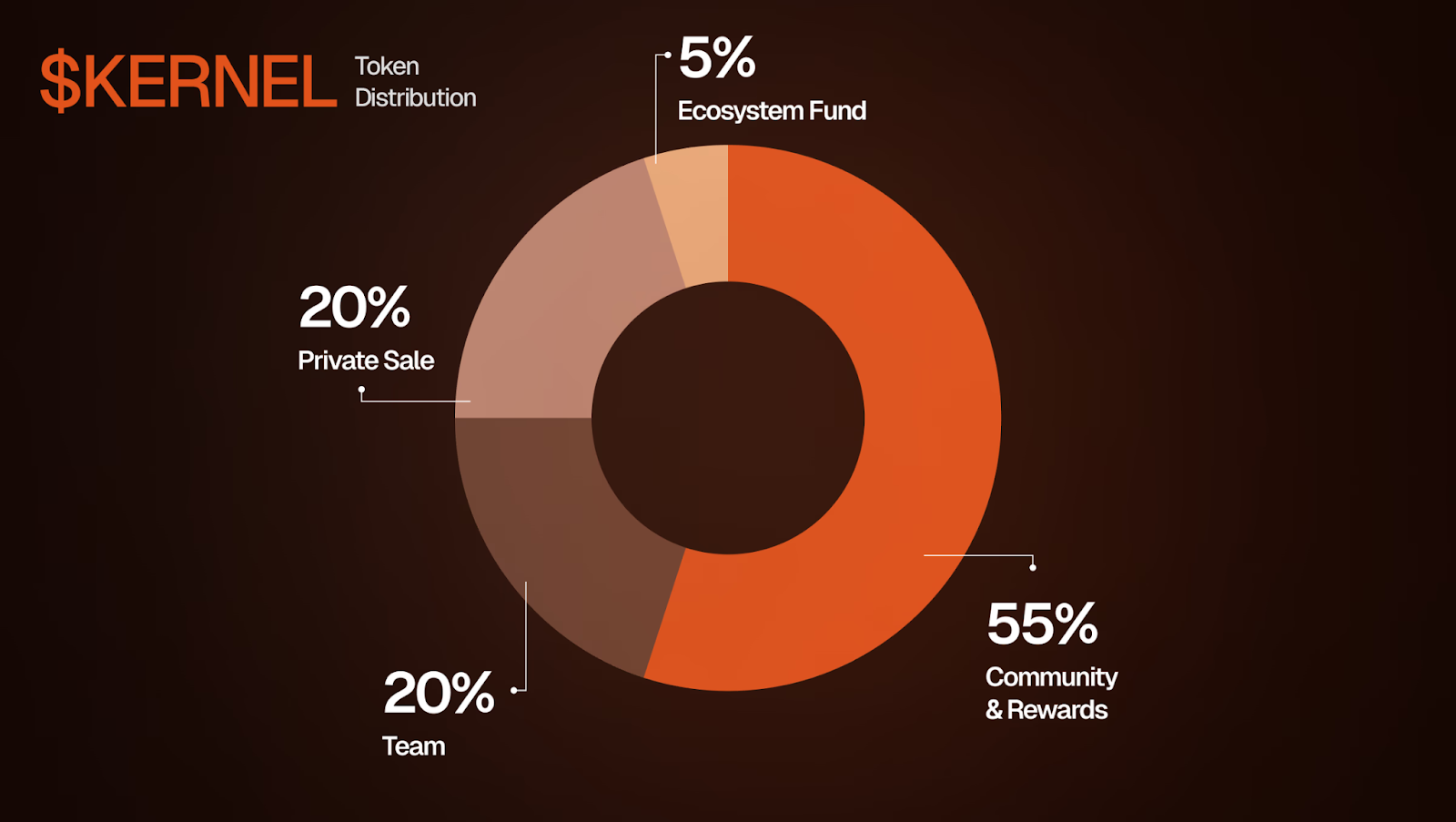
— รางวัลชุมชนและการ Airdrop 55% ถูกจัดสรรให้สำหรับรางวัลชุมชนและแคมเปญ Airdrop ต่างๆ สิ่งนี้เน้นย้ำถึงความมุ่งมั่นของ KernelDAO ในการกระจายวงกว้างและจูงใจการมีส่วนร่วมอย่างแข็งขันจากฐานผู้ใช้
— ทีม 20% จัดสรรให้แก่ทีมผู้ก่อตั้งและที่ปรึกษา โดยปกติจะมีตารางการ Vesting หลายปีเพื่อให้มั่นใจถึงความสอดคล้องในระยะยาวกับความสำเร็จของโครงการ
— นักลงทุน Private Sale 20% จัดสรรให้แก่นักลงทุน Private Sale ซึ่งมักจะมีระยะเวลาการ Vesting เช่นกัน
— สำหรับระบบนิเวศและ Partner 5% จัดสรรให้กับพันธมิตรในระบบนิเวศ ผู้สร้างตลาด และสภาพคล่องบนเครือข่าย
กลยุทธ์การจัดสรรนี้ โดยเฉพาะอย่างยิ่งการเน้นหนักไปที่รางวัลชุมชน มีเป้าหมายที่จะสร้างฐานผู้ใช้ที่แข็งแกร่งและมีส่วนร่วม และรับประกันความยั่งยืนและการกระจายอำนาจของโปรโตคอล KernelDAO ในระยะยาว
ข้อมูลน่าสนใจด้านราคาของ KERNEL
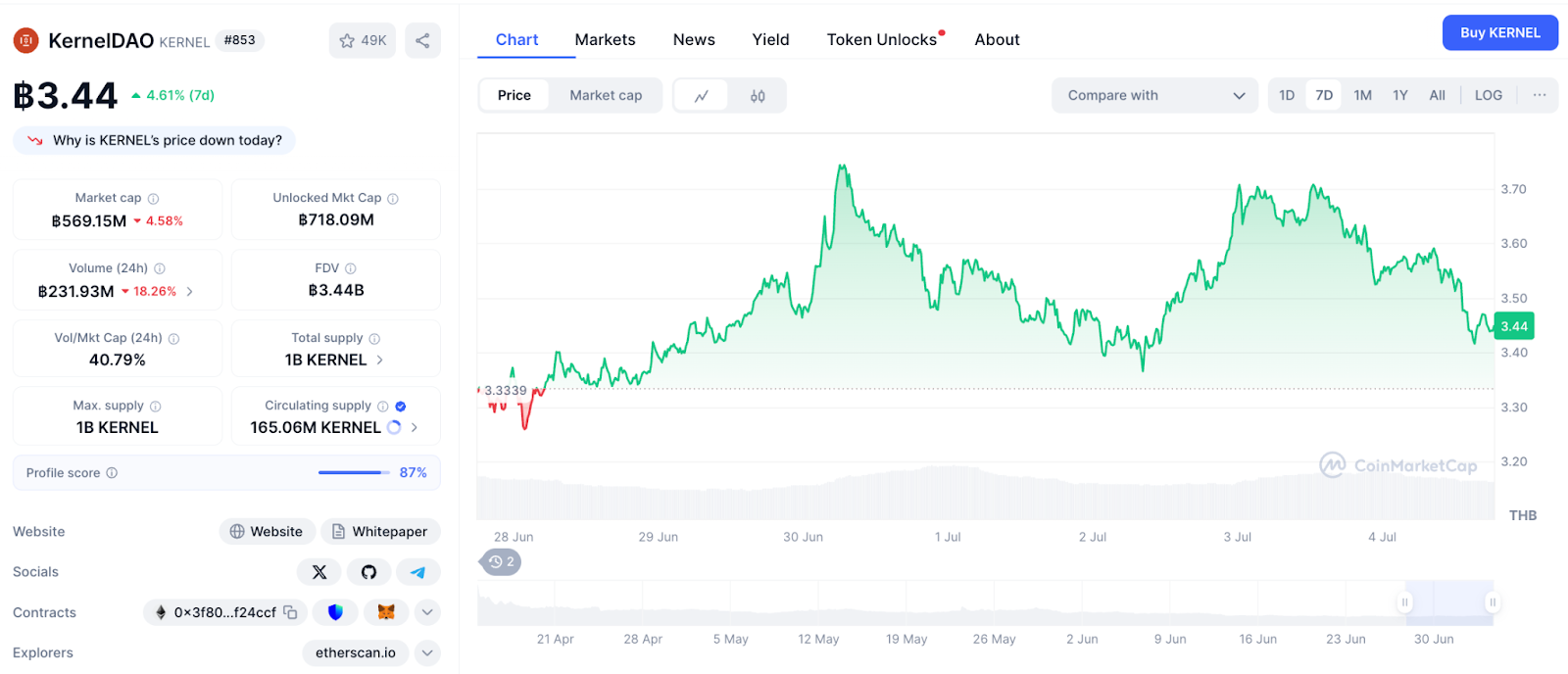
ข้อมูลจากเว็บไซต์ CoinMarketCap เมื่อวันที่ 4 ก.ค. 2025 เหรียญ KERNEL มีมูลค่าตามราคาตลาด (Market cap) ที่ 17,589,012 ดอลลาร์สหรัฐฯ หรือประมาณ 569,142,170 บาท
ณ เวลาที่เขียนบทความนี้ เหรียญ KERNEL ซื้อขายกันอยู่ที่ราคาประมาณ 0.1065 ดอลลาร์ หรือประมาณ 3.44 บาทต่อ 1 KERNEL โดย KERNEL เคยทำราคาสูงสุด (All-time high) ที่ 0.4646 ดอลลาร์ หรือประมาณ 15.02 บาท ต่อ 1 KERNEL เมื่อวันที่ 14 เมษายน 2025
อ้างอิง : KernelDAO, CoinMarketCap
— — — — — — — — — — — — — — — — —

หากคุณยังเป็นมือใหม่ ค้นหาข้อมูลเพิ่มเติมได้ในบทความ “แหล่งความรู้ มือใหม่หัดเทรดคริปโต เริ่มต้นที่นี่” แล้วมาเริ่มต้นเทรดได้วันนี้ที่ Bitkub Exchange → คลิกสมัครเลย
— — — — — — — — — — — — — — — — —
- คริปโทเคอร์เรนซีและโทเคนดิจิทัลมีความเสี่ยงสูง ท่านอาจสูญเสียเงินลงทุนได้ทั้งจํานวน โปรดศึกษาและลงทุนให้เหมาะสมกับระดับความเสี่ยงที่ยอมรับได้
- ผลตอบแทนของสินทรัพย์ดิจิทัลในอดีตหรือผลการดําเนินงานในอดีต มิได้เป็นสิ่งยืนยันถึงผลตอบแทน ของสินทรัพย์ดิจิทัลหรือผลการดําเนินงานในอนาคต
— — — — — — — — — — — — — — — — —
KERNEL Token from KernelDAO: The Multi-Chain Restaking Protocol
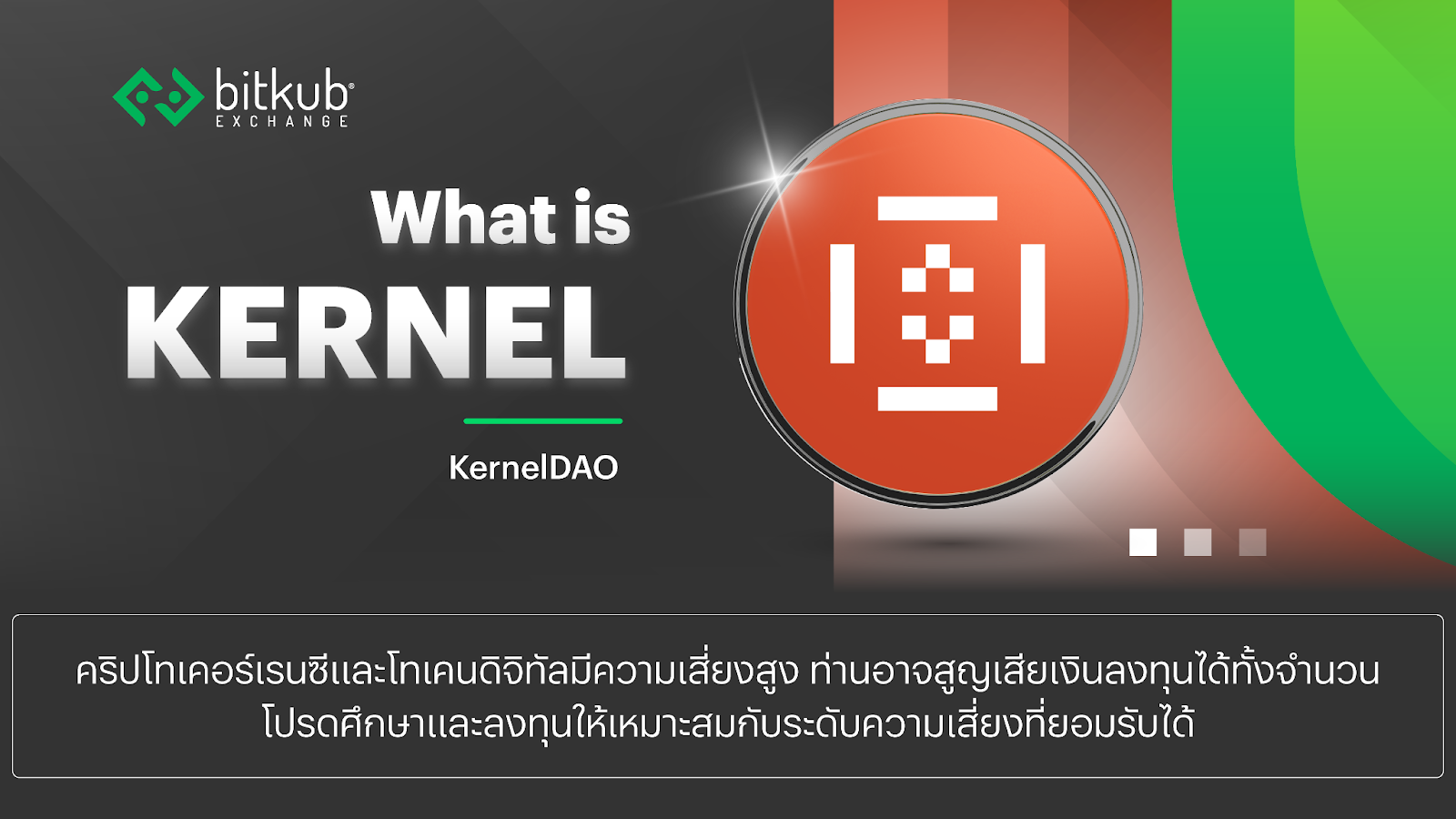
For crypto enthusiasts eager to delve into the rapidly evolving world of Decentralized Finance (DeFi), KernelDAO stands out as a pioneering multi-chain restaking protocol. Designed to optimize the utility and security of staked digital assets, KernelDAO leads innovation by enabling assets to work harder across various blockchain networks.
What is KernelDAO?
KernelDAO is a decentralized protocol that enables “Restaking,” a mechanism where staked assets (such as ETH, BTC, or BNB) can simultaneously secure multiple blockchain networks and Actively Validated Services (AVSs). Traditionally, staking often limits assets to a single network, restricting their potential. KernelDAO breaks this limitation by offering a comprehensive platform that enhances capital efficiency, reduces security costs for new projects, and unlocks additional yield opportunities for users. It operates within major ecosystems like Ethereum and BNB Chain and expands its reach through integrations with numerous Layer 2 solutions.
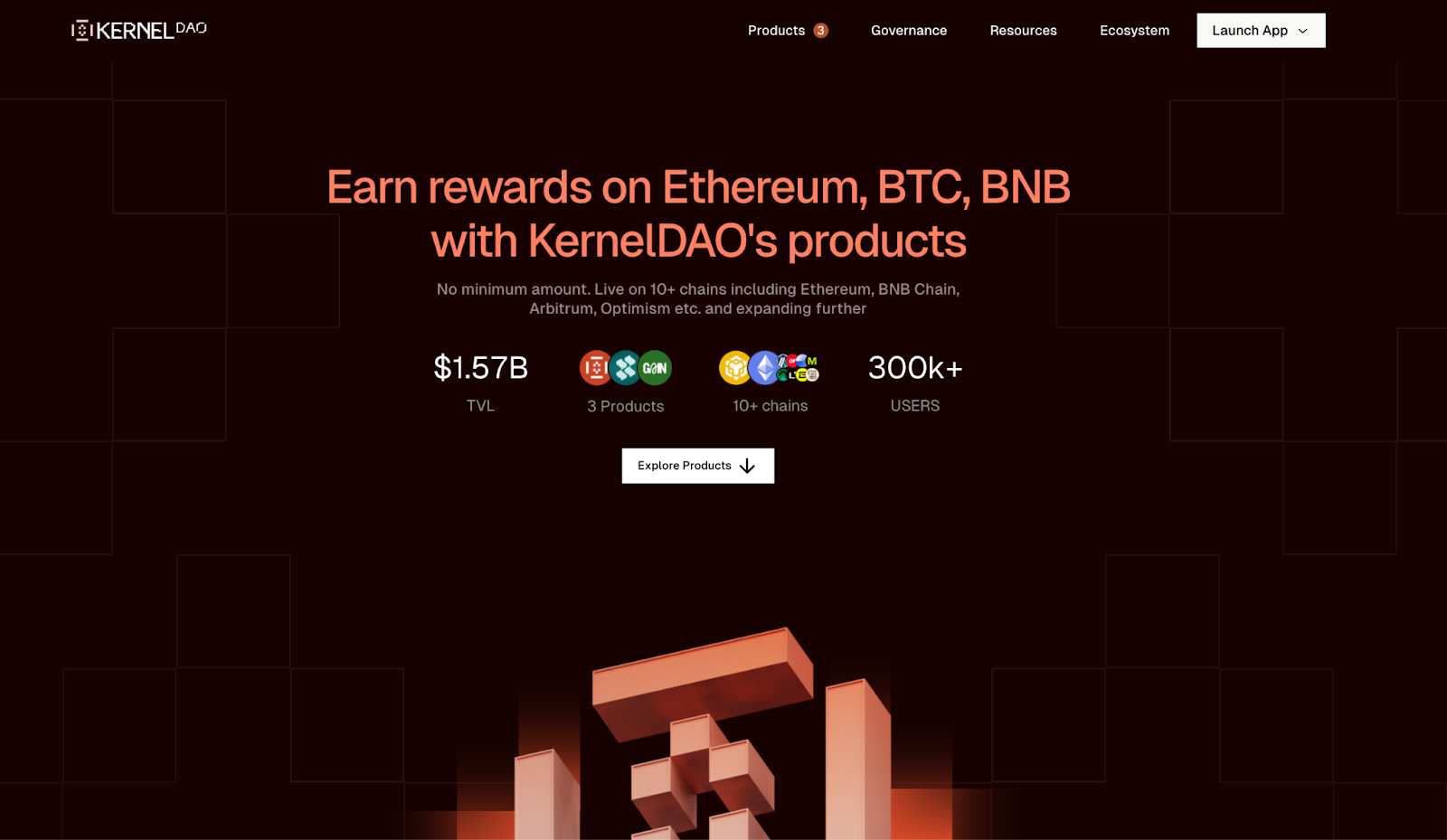
Key Features of KernelDAO
KernelDAO’s ecosystem is built upon three distinct yet interconnected products:
— Kernel (Shared Security Layer on BNB Chain): This is the fundamental restaking infrastructure on the BNB Chain. Users can restake BNB, BTC, and other supported assets to provide economic security for various decentralized applications and middleware. By pooling restaked assets, Kernel makes crypto-economic security more accessible and cost-effective for both delegators (who receive additional rewards) and developers (who benefit from lower security bootstrapping costs).
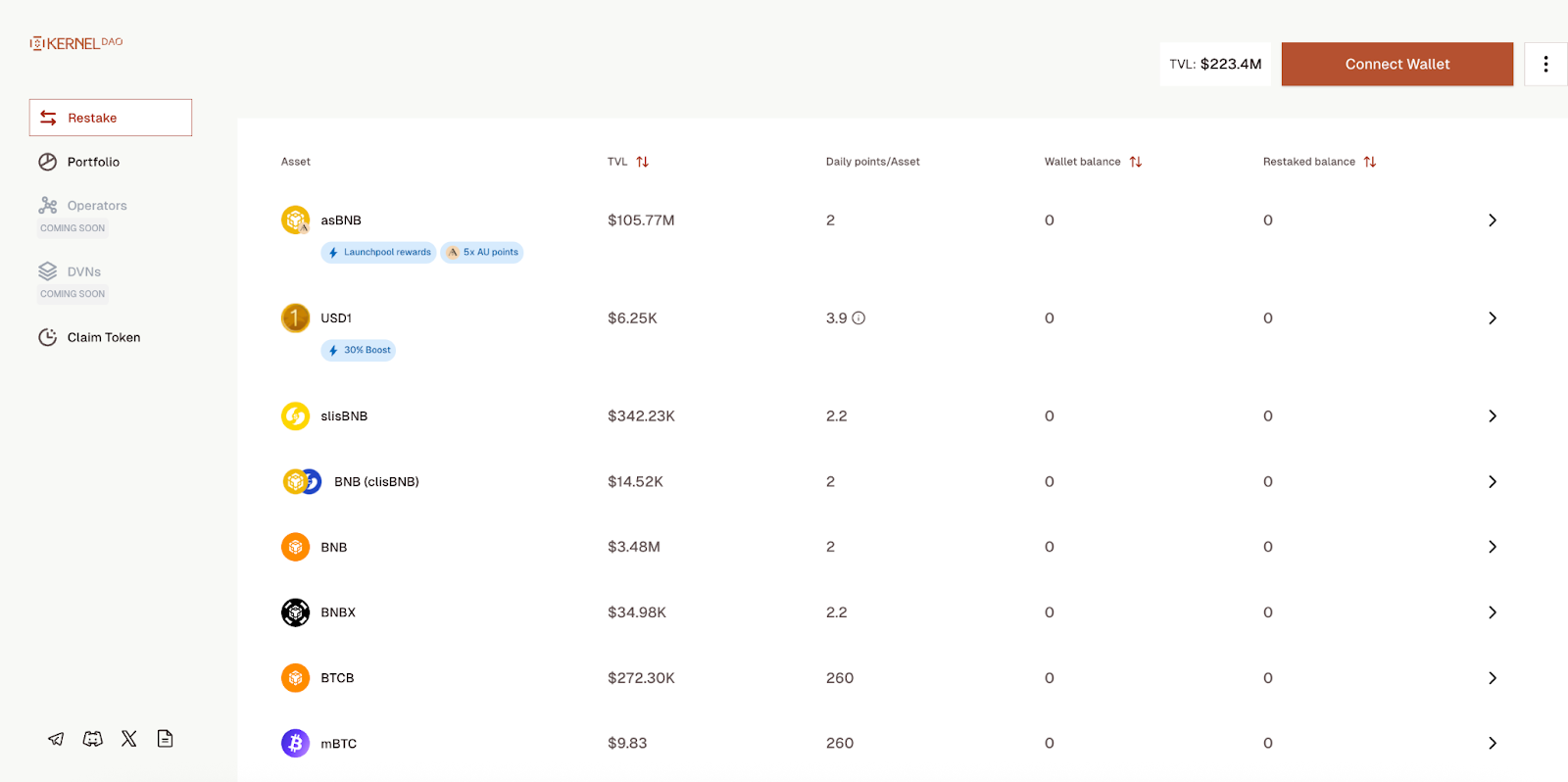
— Kelp (Liquid Restaking on Ethereum): As a leading liquid restaking protocol on Ethereum, Kelp allows users to stake ETH and receive RSETH, a liquid restaked token. This RSETH token maintains liquidity, enabling users to participate in other DeFi applications like lending and liquidity pools while still earning both staking and restaking rewards. Kelp has quickly become a significant player, boasting substantial Total Value Locked (TVL) and extensive integrations with various DeFi platforms.
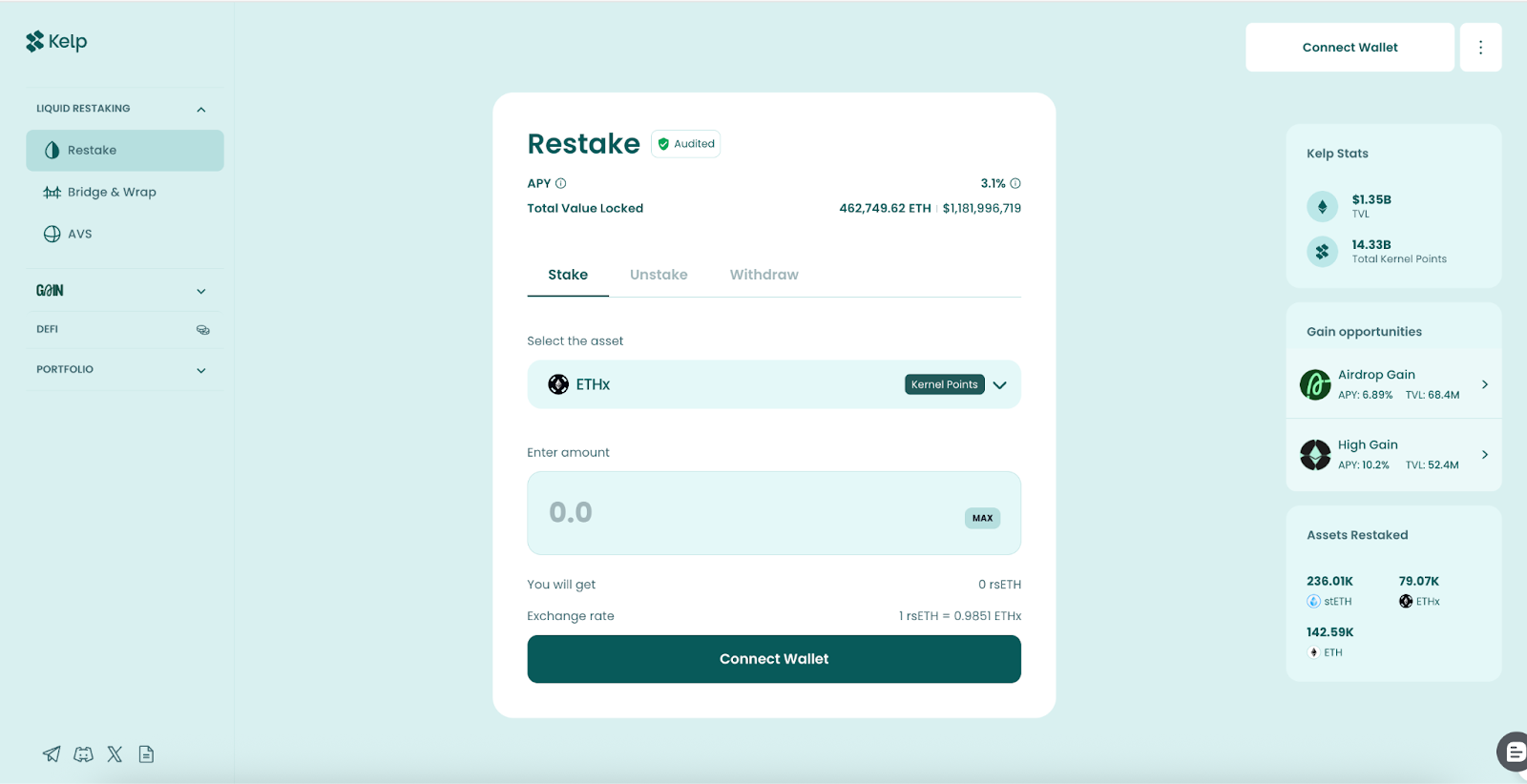
— Gain (Automated Yield Vaults): Gain offers sophisticated, non-custodial yield optimization vaults. These vaults automate complex farming, staking, and Airdrop opportunities, simplifying the process of generating passive income. They are designed to maximize returns by deploying assets across various protocols, providing a user-friendly way to navigate diverse DeFi strategies.
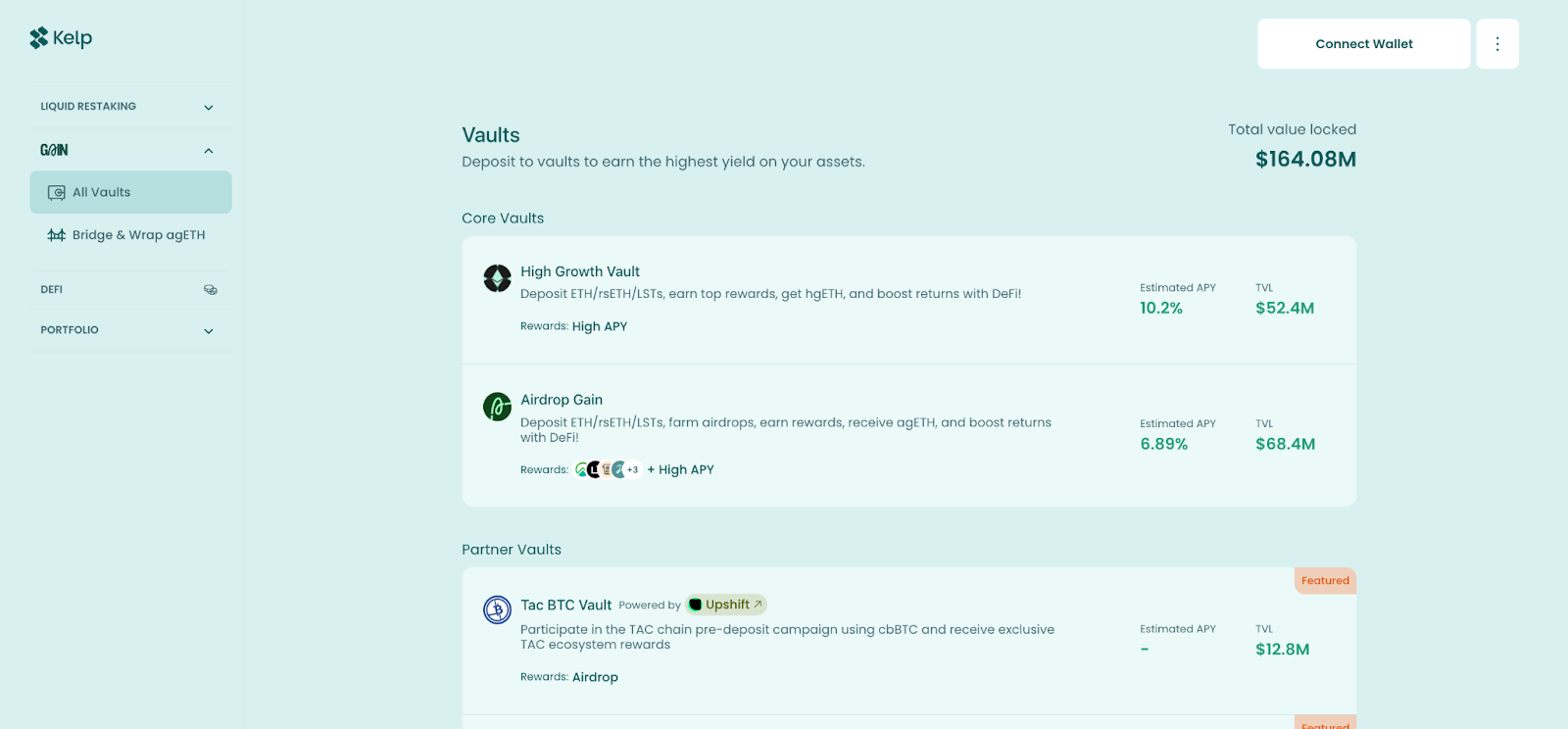
Beyond these products, KernelDAO prioritizes robust security, incorporating built-in insurance mechanisms, community-driven security audits, and a transparent, collaborative ecosystem to mitigate risks.
KernelDAO Founders
KernelDAO was founded by Amitej Gajjala and Dheeraj Borra. Both are experienced builders with extensive backgrounds in the Web3 ecosystem and Decentralized Finance, driving KernelDAO’s vision to bridge staking, liquid restaking, and yield optimization.
What is the KERNEL Token?
The KERNEL token is the governance token of the KernelDAO ecosystem. It plays a crucial role in the protocol’s functionality and economic model, serving several key purposes:
— Governance: KERNEL holders have the power to participate in decentralized governance, voting on key proposals, protocol upgrades, validator selection, and fee structures for the entire ecosystem.
— Staking and Security: Staking KERNEL tokens contributes to the economic security of protocols built on KernelDAO, earning stakers rewards and acting as collateral against potential slashing risks.
— Incentives: KERNEL tokens are used to incentivize active participation, rewarding users who engage in restaking, validators who secure the network, and developers who contribute to the ecosystem’s growth.
— Utility: KERNEL facilitates internal payments, cross-chain operations, and access to specific features within the KernelDAO suite.
Token Allocation and Tokenomics
The total supply of KERNEL tokens is typically 1 billion (1,000,000,000) KERNEL. The tokenomics are designed to foster a robust and community-driven ecosystem, with a significant portion allocated to user incentives:
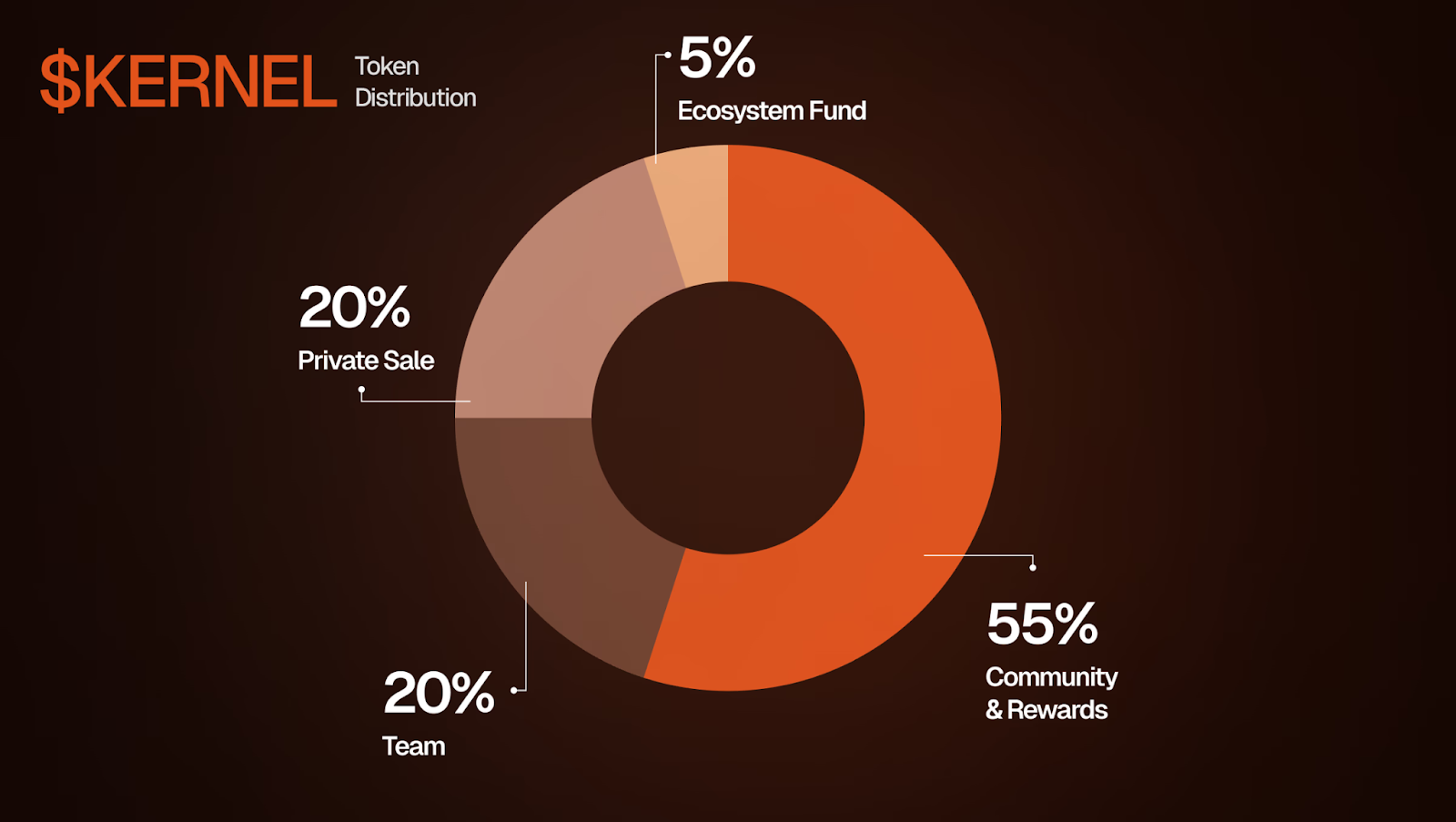
— Community Rewards & Airdrops: 55% is allocated for community rewards and various Airdrop campaigns. This underscores KernelDAO’s commitment to broad distribution and incentivizing active participation from its user base.
— Team: 20% is allocated to the founding team and advisors, typically subject to multi-year vesting schedules to ensure long-term alignment with the project’s success.
— Private Sale Investors: 20% is allocated to private sale investors, also often subject to vesting periods.
— Ecosystem and Partners: 5% is allocated to ecosystem partners, market makers, and on-chain liquidity.
This allocation strategy, particularly the strong emphasis on community rewards, aims to build a robust, engaged user base and ensure the long-term sustainability and decentralization of the KernelDAO protocol.
KERNEL Price Insights
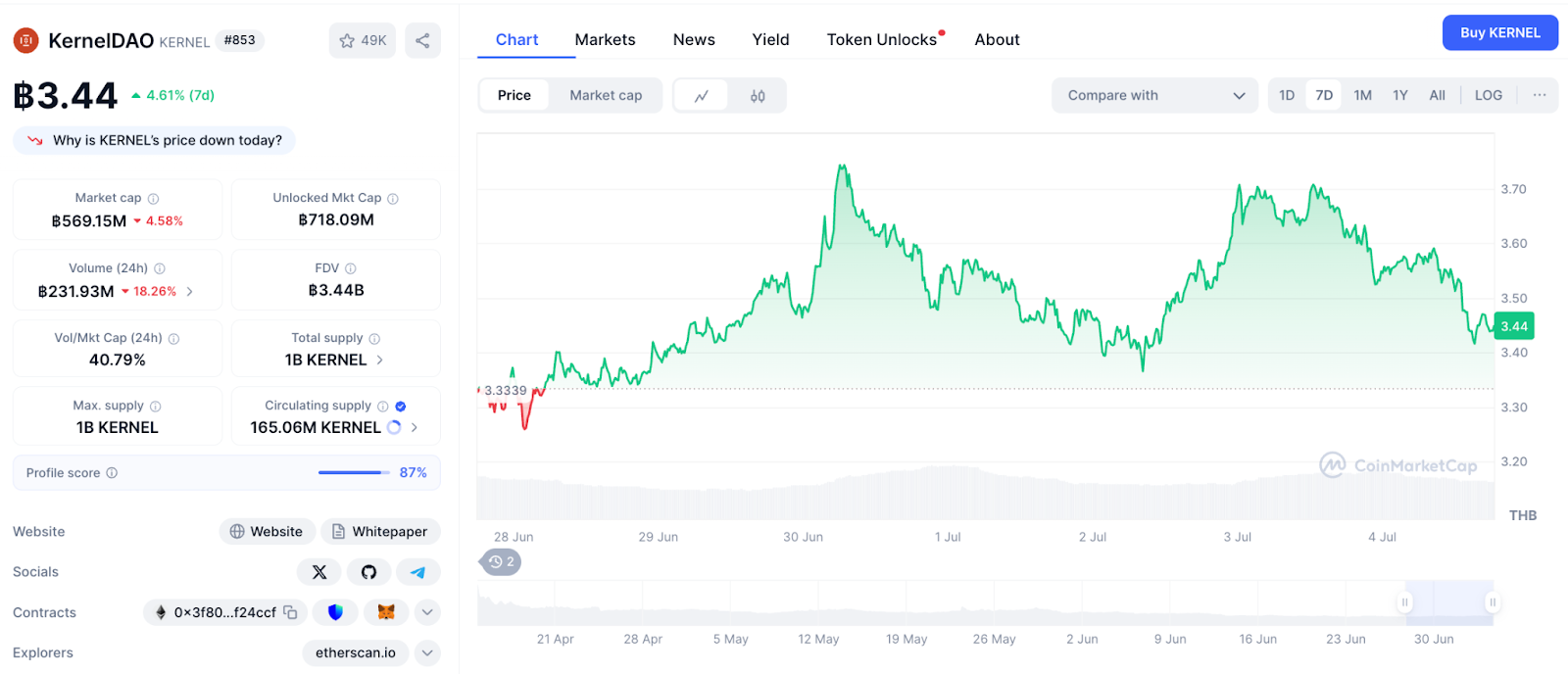
According to CoinMarketCap data as of July 4, 2025, the KERNEL coin has a market cap of $17,589,012 USD, or approximately 569,142,170 Thai Baht.
At the time of writing, KERNEL is trading at approximately $0.1065 USD, or about 3.44 Thai Baht per 1 KERNEL. KERNEL reached its all-time high of $0.4646 USD, or approximately 15.02 Thai Baht per 1 KERNEL, on April 14, 2025.
Reference: KernelDAO, CoinMarketCap
— — — — — — — — — — — — — — — — —

New to crypto? Learn the ropes with our beginner’s guide, ‘Crypto Knowledge for beginners’. When you’re ready, take the next step and start trading today at Bitkub Exchange. Click here to apply!
— — — — — — — — — — — — — — — — —
Disclaimer:
— Cryptocurrency and digital tokens involve high risks; investors may lose all investment money and should study information carefully and make investments according to their own risk profile.
— Past Returns does not guarantee future returns/performance.
ที่มา:
Medium